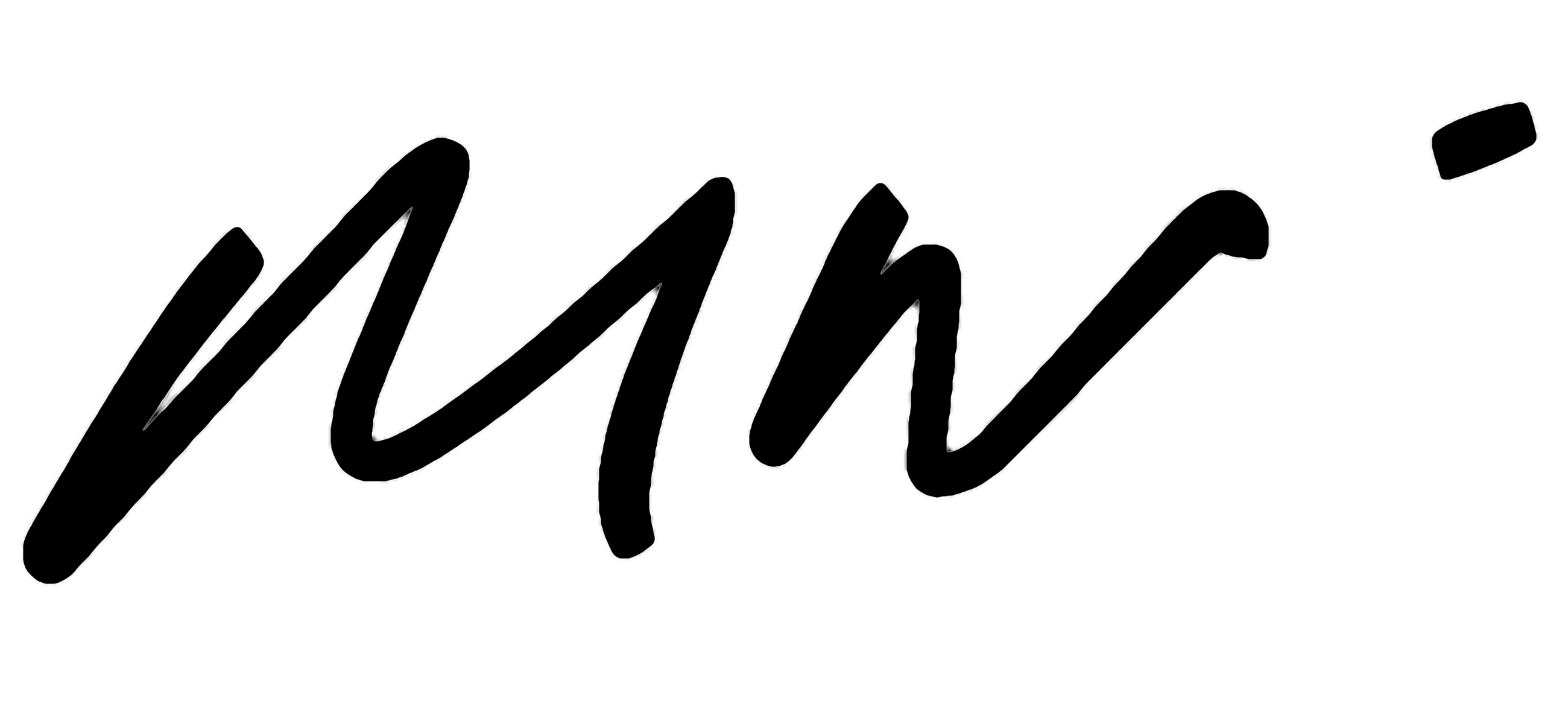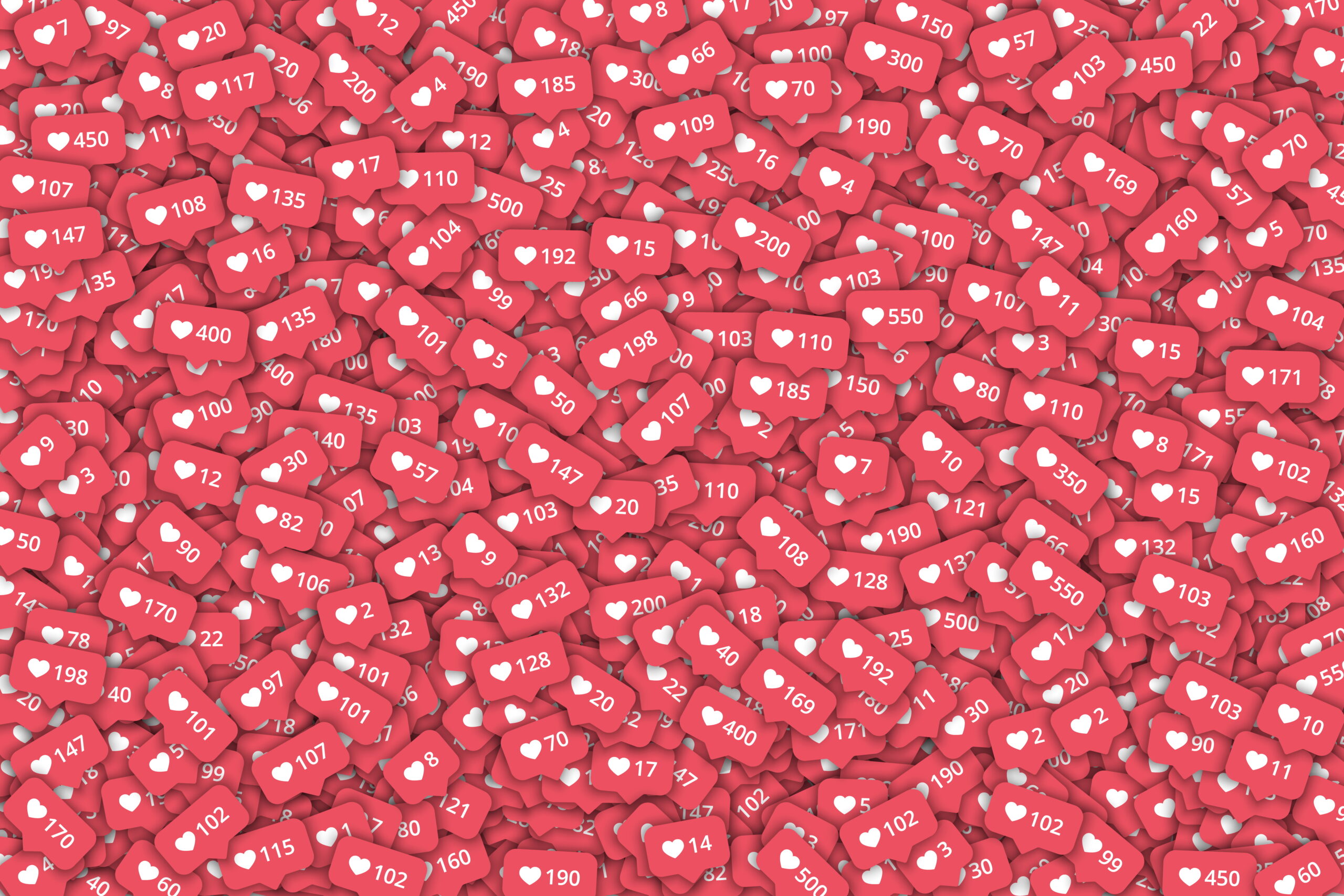CONFESSION: I am, at best, a sporadic Instagram user. I occasionally open the app, scroll through and look at friends’ photos (many of which are exactly the same ones I see on their Facebook profiles because auto-posting to both accounts is just easy, I know). A few good friends often text me what they post on their Insta-Stories because they are well aware that’s the only way I’ll see them (“I know you’ll never see this if I don’t just text it to you!”). I sometimes remember to post my own photos there — my account is mainly focused on running and food and, of course, my beagles, but I’ve never put a whole lot of time into (to sound trendy and posh) curating my content, so while those are the three main focuses, it’s also a hodge-podge of whatever I feel like when I think of it. Then again, I don’t consider myself an Insta-Influencer, which begs the question: does it really matter? (insert eye roll here)
I know, I know, that social media curation and management is a real job, so before anyone comments, I’m downplaying the role social media has taken on in marketing, PR, advertising, and the like… Stop. Don’t. I get it. Not everyone can be a Kardashian (thank goodness), and for the average user, social media is a fun and creative outlet and a good way to share our lives with our friends.
However, I will admit (and if you’re being honest with yourself, I believe you’ll admit that you feel the same way) it’s nice to see those likes pop up. It’s nice to see that people like what you’re posting and when it’s a photo or a moment you’re particularly proud to share, it’s nice to know that others see those likes, too.
It’s nice, but is it necessary?
As early as April 2019, we saw reports that Instagram was testing a new version of its platform that hides “likes” on posts in seven countries. The trial began in Canada, where likes were hidden by default (and users could opt back in to have their likes show publicly); May, June, and July saw test countries expanded to Ireland, Italy, Japan, Brazil, Australia, and New Zealand.
At first glance, the decision is admirable: a great step for the platform to take in light of the growing discussions centered around the links between social media and low self-esteem and social media addiction. Indeed, when the initial announcement, Instagram wanted followers to “focus on the photos and videos you share, not how many likes they get.” The CEO of the Facebook-owned Instagram stated in an interview, “We want people to worry a little bit less about how many likes they’re getting on Instagram and spend a bit more time connecting with the people they care about.”
Unpacking that rationale, one can argue that seeing the number of likes you have versus the number of likes someone else has cannot solely blame for the negative feelings of self-worth associated with social media. While an article on Science Alert stated that “the mental health repercussions of counting likes cannot be ignored [because] the design of social media promotes social comparison,” the problems go much deeper than simply like-count. [1] The (quite literally) picture-perfect lives portrayed by influencers (both the paid and the self-proclaimed — for an example that will surely give you Insta-envy, check out one of my favorites: Sophie Hinchliffe, a.k.a. MrsHinchHome) create an unrealistic view of what the poster’s life is like, leading to feelings of inadequacy in those who may already suffer from low self-esteem (not to mention the issues with trolling and bullying and the evils of those with too much time on their hands and the bravery of being behind their keyboard, who lurk in the depths of every social media platform). Even with influencer culture becoming the butt of jokes — I love comedian Celeste Barber’s Instagram account in which she recreates and ridicules ridiculously “perfect” photos — and even with influencers who have a sense of humor posting their outtakes to show that their lives (like most of their photos) are not perfect — check out Amsterdam based vlogger Rianne Meijer who has 353k followers and regularly posts side-by-side photos of her not-so-perfect takes next to the ones that “made the cut” [2] — even with this kind of increased transparency, the psychological effects of social media have a huge impact on those who can now judge their complete lives and worth against the curated lives of those they follow.
 Furthermore, users will still be able to see the number of likes received on their posts — so, while not being able to see the number of likes on others’ posts means less comparison between the self and others, the platform will not be like-free. Feelings of self-esteem and self-worth frequently associated with social media activity could still be negatively affected. Users will still be able to see if their posts receive a low number of — or zero — likes; simply hiding the number of likes from public view is unlikely, in my opinion, to achieve what Instagram is claiming to be working for with this change: worrying more about connecting and less about the number of likes. An article in AdWeek confirmed my thoughts that “[r]emoving likes hasn’t changed the fact that people will always find ways to compare themselves to others. This is a band-aid solution that no one asked for.” [3] I’d argue that there will be just as much worry about the number of likes for those who already use those likes as a measurement of popularity or status symbol, and if a user can see their likes, what stops them from, say, screenshotting their most popular posts, reposting them, and creating a new form of comparison (see screenshot at right —–>>>), bringing us full circle, right back to where we started.
Furthermore, users will still be able to see the number of likes received on their posts — so, while not being able to see the number of likes on others’ posts means less comparison between the self and others, the platform will not be like-free. Feelings of self-esteem and self-worth frequently associated with social media activity could still be negatively affected. Users will still be able to see if their posts receive a low number of — or zero — likes; simply hiding the number of likes from public view is unlikely, in my opinion, to achieve what Instagram is claiming to be working for with this change: worrying more about connecting and less about the number of likes. An article in AdWeek confirmed my thoughts that “[r]emoving likes hasn’t changed the fact that people will always find ways to compare themselves to others. This is a band-aid solution that no one asked for.” [3] I’d argue that there will be just as much worry about the number of likes for those who already use those likes as a measurement of popularity or status symbol, and if a user can see their likes, what stops them from, say, screenshotting their most popular posts, reposting them, and creating a new form of comparison (see screenshot at right —–>>>), bringing us full circle, right back to where we started.
Those in mental health professions have been speaking in favor of more regulation and awareness on the impact of social media for quite some time. High-profile stories of online bullying and suicides (especially of preteens and teens) linked, directly or indirectly, to social media are getting more attention. A recent study by the Royal Society for Public Health in the U.K. found that “social media may be fuelling a mental health crisis” in young people, with Instagram being the biggest culprit. [4] The report also stated that “[social media] could also be used as a tool for good… Instagram, for example, was found to have a positive effect on self-expression and self-identity.” How do we balance, then, the positive effects on self-expression and self-identity with the negative effects on self-esteem and self-worth? (That’s a big question and likely a topic for another post…)
The U.K.’s Information Commissioner’s Office has suggested turning off the “like” function and limiting data collection and geolocation tools on platforms, such as Instagram and Facebook, for users under age 18 as part of an age-appropriate design the office recently released. [5] Denmark has announced plans to begin regulating Instagram posts, and other facets of social media to protect its youth, following one of the country’s biggest Instagram stars publicly posting her suicide note to the platform — for her 336,000 followers on a post that received more than 30,000 likes and 8,000 comments in just two days before her family managed to have it removed. [6]
Metrics of Success
As a REALTOR® (or other small business owner, particularly those not directly paid by the 100-likes or other measured engagement), is your metric for examining and determining your social media success? Do you track or otherwise assess your success — the time you spend online, the posts you write and publish, the photos your curate and share — based on likes? Will Instagram’s changes, if/when they make it to the U.S. platform, affect you positively or negatively? Do you pay attention to the likes on your posts? Do you respond to comments and create conversation? If you have children, do you monitor not just their posts but how they feel about the engagement they get? Do they express disappointment, elation, surprise, pleasure, or sadness when their likes are higher or lower than expected? Do you measure some degree of your success against the likes, comments, and shares of your social media posts?
Full transparency: I can’t say that I’ve been immune to some of the negative effects of social media. Though I will never claim to have been bullied and certainly have not had suicidal thoughts (and I am appropriately horrified when I hear those stories), I can admit to feeling slightly down or disappointed when I post something that I think is beautiful or clever or thoughtful and it doesn’t get the attention I wanted for it, when I don’t get the engagement I hoped for. If we’re being honest with ourselves, most of us can admit that social media sometimes makes us feel bad. It’s also likely that more of us will quietly admit that to ourselves than out loud publicly. That feeling lasts for a moment, and then it’s gone because I know it’s outside of my control — it’s Facebook’s or Instagram’s algorithm in control. The part I control is whether I choose to keep posting, whether I choose to remain on the platform, or whether I choose to take a break.
Another group now is claiming that the psychological effects of Instagram’s changes will affect them in a whole new way, especially in light of Instagram’s changes. “Influencers” have reacted loudly to the hiding of likes with cries of “Instagram is a REAL JOB!” [7] Mashable recently published a cacophony of tweets and posts expressing emotion ranging from delight to outrage at the removal of publicly-viewable likes. [8] When the announcement of the new platform test was made, an influencer in Australia posted a tearful video to her page, claiming that the change would affect her livelihood and stating, “I know that, mentally, Instagram to me is a problem and I can’t even accept that…” and vowing to take a break from the platform so that should could “get back on track because right now I’m scaring myself.” (Incidentally, her “break” lasted less than 24 hours, so I’m guessing she’s going to be just fine…)


“Speaking for myself I personally want to participate in social media with the option of not having to show my followers or likes.”
Kanye on Twitter @kanyewest
Though Kanye is speaking about Twitter specifically in his posts (and clearly he doesn’t suffer from a lack of likes, comments, and retweets), his words resonate and make sense. Kanye West as a social advocate…who knew?
What’s Instagram Really Up To?
There are, however, more cynical (and likely more accurate) ways to view Instagram’s move to hide likes. After all, Facebook bought the photo-sharing platform in 2012 and is itself notorious for making decisions to drive advertising dollars and revenue, even beyond the changes made over the years to business pages (those donate-your-birthday fundraisers and start-a-fundraiser prompt Facebook gives you? Yeah, you know they take a piece of every donation, right?). To shift their businesses to keep up with Instagram’s new changes, influencers (who are often paid by the number of likes on their posts) will need to shift focus to a different type of engagement, which will mean the need to attract more comments rather than likes on their posts. Commenting on posts takes, in my estimation, longer than simply clicking like, which will increase the amount of time that consumers and the influencers themselves spend on social media, leading to more ads getting views and, if I had to guess, advertisers spending more money either to be seen or because they will begin seeing a greater return on the dollars they’re already spending. Commenting, rather than likes will become the new currency and the new standard by which to compare posts and popularity (so we’ll be right back to self-validation based on comparison — just trading comparison of the number of likes to comparison of the number of comments). Additionally, just as with Facebook’s continual changes to their algorithms, which mean you never quite wrap your brain around exactly whose posts you’ll see in your feed (and why), Instagram making changes means they can knock users off balance a bit (remember when they changed the feed from reverse-chronological to…not?), keep changing the game, and ultimately, increase the number of advertising dollars coming in (I know what you’re thinking: hey! that’s what Facebook did and why we all have to buy ads to have the content on our business pages SEEN now! Yup.) In other words, want your posts to be seen? Pay us! Want them to be seen even more? Be engaging enough that your followers feel compelled to comment — and don’t forget to comment back! Not getting enough comments? Then you need to be seen more, so pay us!

Need an Insta-Alternative?
In diving down the rabbit hole of articles about Instagram, influencers, and the insidious nature of the “like,” I found an interesting article from Fast Company about an app that seems to answer many people’s prayers: filtergram.app. The first paragraph of the Fast Company article [9] is so entertaining that it’s worth posting in its entirety: “Remember when Instagram was the fun, simple, non-toxic social network? I suppose it still is in some way, but only in comparison to the slavering Hellmouth of Twitter and the democracy-poisoning Borg-cube that is Facebook. Judged on its own merits, I’d argue Instagram – which, in its mere eight years of operation, has spawned a pond-scum ecosystem of paid “influencers,” skewed the mental health of scores of teenagers, and made “Stories” a thing we all have to deal with – is a net-negative for humanity, too. Don’t you wish you could return to those just-a-feed-of-pretty-pictures days?” (PLEASE just read the entire article — it’s totally worth it for the pure entertainment value.)
Filtergram.app lets you do just that. No likes, no comments; no Stories; no ads. You don’t even have to have an Instagram account. It’s pure genius. And “the feed is chronological, the way God intended.” (Seriously, read the article.)
Back to Instagram and What This Means to Regular People (and also, you know, REALTORS®)
So how will this new version of Instagram work? Basically, if you have an Instagram account, you will be able to see the number of likes you receive on each post, but your followers won’t get to automatically see the numbers, as they have in the past. (U.S. users, we still have the old version — for now.) Instead, followers will be able to click and see who liked your post but will have to count the list of names themselves; this may also be on the chopping block in the future, with only the poster being able to see and/or count likes.
Because I’m a REALTOR® (and likely most of you reading this are, too), I have a few final words on this and how it affects me. And maybe you. And our profession as Insta-Users. As I confessed, I’m a sporadic-at-best Instagrammer. It’s fun, but it’s not crucial to my life or my business. Just as I adjust my use and habits every time Facebook changes, I’ll adjust my Instagram usage, so it’s still pleasurable. When I teach other REALTORS® — whether I’m discussing social media or a client sphere of influence — I like to focus on quality over quantity (sounds like common sense, but it’s easy to veer off the path from time to time). Despite those little moments of acute self-awareness when one of my posts doesn’t get the desired amount of attention, I find I’m able to shift my focus back to the quality of the people with whom I interact online, the quality of the posts and photos I upload, and the quality of the responses I receive.
Instagram making changes shouldn’t surprise any of us: it is, after all, a free platform, beholden to no one (except its owner, Facebook). The most successful social media users — whether we’re talking influencers, social media managers, REALTORS®, or just plain old regular people — are the ones who go with the flow, who adapts, who look at change as a challenge and a chance to grow and learn (rather than as an end to all we hold dear). I like to remind myself that someday Facebook and Instagram could be gone (so could Twitter, hallelujah!) — they could go the way of Friendster and MySpace, and we might have to learn something new. Nothing is forever, especially not something free.
So here are my parting words for this post, my friends: enjoy it while it lasts or enjoys it for as long as you enjoy it, and when you don’t enjoy it anymore, stop doing it and find something else you like more. If you’re finding that you enjoy it less and less, analyze why you’re still there, and decide if the benefits are enough for you to stay, and if not, find other ways to connect with your friends and clients and sphere of influence. You don’t have to be on Instagram or Facebook or Twitter.
You are more than your likes.
MORE READING:
- Instagram May Be Getting Rid of ‘Likes’ on Platform – Forbes
- Instagram expands its test to hide like counts – The Verge
- Instagram is getting rid of the total number of likes in Australia — and it could soon be the new normal – Business Insider
- Here’s Why Instagram Getting Rid of Likes Could Be a Big Deal For Our Mental Health – Science Alert [1]
- Denmark Plans Regulation of Influencers Following Suicide Note – BBC [6]
- ‘Instagram is a REAL JOB!’ Instagram Influencer…goes on a very emotional rant… – Daily Mail [7]
- Instagram ‘worst for young mental health’ – BBC [4]
- Hate social media but can’t let Instagram go? This app is for you – Fast Company [9]
- Influencer Exposes the Truth Behind Those ‘Perfect’ Instagram Photos With Her 30 Side-By-Side Pics – Bored Panda [2]
- Facebook urged to disable ‘like’ feature for child users – The Guardian [5]
- Instagram hiding its ‘likes’ is no bad thing, but young people will find a way round it – The Guardian
- Here’s What Instagram Creators in Canada Think About Hidden Like Counts – AdWeek [3]
- Instagram’s started hiding likes, and not everyone, uh, likes it – Mashable [8]
DISCLAIMER: I am not a mental health professional, nor am I trained in advising on or counseling for mental health in any way. The opinions stated in the post above are mine and solely mine and represent the limited amount of research I have done, as well as my personal feelings and experiences.



